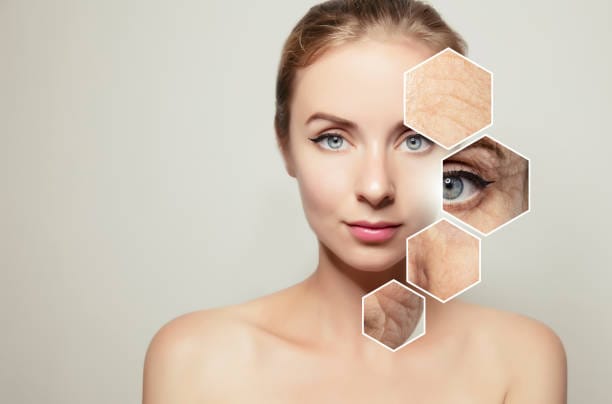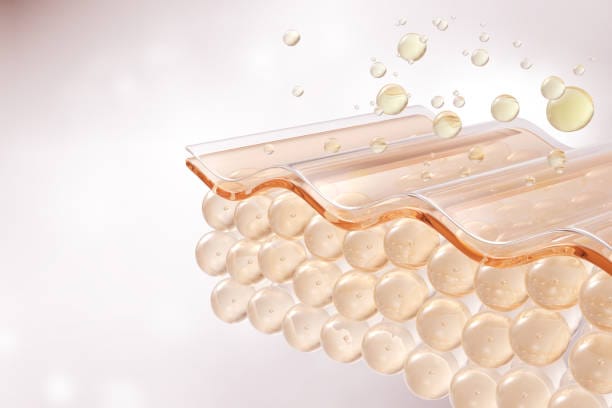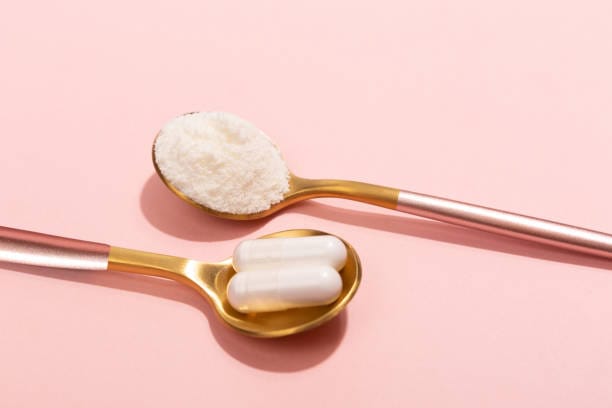In recent years, scientific advancements in understanding aging processes have fundamentally redefined our approach to skincare. Dermatological innovations in 2025 aim to delay—or even reverse—the effects of aging on the skin. “Longevity cosmetics” now focus on optimizing the youthfulness of our epidermis and, consequently, our overall well-being (both physical and psychological).

Collagen and the beauty industry
Skincare alone generates an astonishing global revenue of $177 billion per year. This shows the importance of this sector in our daily lives.
The United Kingdom and France are among the world's top 10 consumers of “beauty products” (behind the United States, China, Japan, and Brazil).
In France, the most recent international COSMETIC 360 trade show celebrated its 10th anniversary just four months ago. Among the promising products presented at the event were:
- Neuro-calming peptides that reduce the micro-contractions responsible for expression wrinkles,
- Encapsulated plant stem cell extracts for better penetration of active ingredients,
- Next-generation antioxidants derived from marine biotechnology,
- Enzymes such as AMPK (AMP-activated protein kinase) and ERK (extracellular signal-regulated kinase).
Collagen, the 2025 star !
But the star of the show was collagen ! Collagen also took center stage at the London Beauty trade Show last weekend, in all its forms—hydrolyzed, marine, powdered, in capsules, syrups, broths... We already knew it as a key ingredient in anti-wrinkle creams, but now it’s making a big comeback as a dietary supplement.

The importance of collagen in the body
This large protein—the most abundant in the human body—ensures skin elasticity and strengthens bone density, ligaments, tendons, and cartilage (marine collagen is extracted from fish scales, skin, and bones). Since collagen production decreases with age, the idea of replenishing our reserves through dietary intake seems logical.
In no time and with heavy marketing efforts, collagen supplements have climbed the ranks to become an anti-aging treatment and a beauty must-have, supposedly revitalizing the skin, reducing wrinkles, relieving joint pain, and making hair shinier.
Collagen, a revolution or an illusion ?
In 2025, with hindsight and results from multiple studies, can we really talk about a dermatological revolution, or is this just another marketing illusion?

Once ingested, collagen is assimilated by the body in the form of amino acids to rebuild proteins. It is impossible to predict which ones.
Some dermatologists have observed a 5 to 10% improvement in skin hydration after a three-month treatment. Collagen as a food supplement is therefore not useless, but the benefits on the skin seem limited.
The new alternatives to collagen
Research on epigenetics, bioactive compounds, and telomere protection appears more promising as it is based on real scientific data and leads to targeted solutions.
Epigenetics aims to act on the genes responsible for collagen and elastin production without modifying their structure—similar to how our environment and lifestyle influence gene expression.
Bioactive agents such as retinoids and hyaluronic acid (which are well-established) are now being enhanced with new components beneficial to skin vitality. These include marine extracts and adaptogens, which directly target biological processes in the skin (such as oxidative stress, inflammation, and damage caused by free radicals).
Research on telomeres focuses on protecting these small "protective caps" at the ends of chromosomes. Their shortening with each cell division is thought to play a major role in skin aging.
These scientific avenues open up new and credible perspectives for the near future

The efficiency of collagen as a food supplement - the conclusion.
In the meantime, the best beauty routines remain unchanged, and their effectiveness is well-proven: get enough sleep, eat a balanced diet, stay well-hydrated, avoid smoking, and protect yourself from stress and UV rays from the sun. The formula is simple and 100% beneficial for your skin health.



